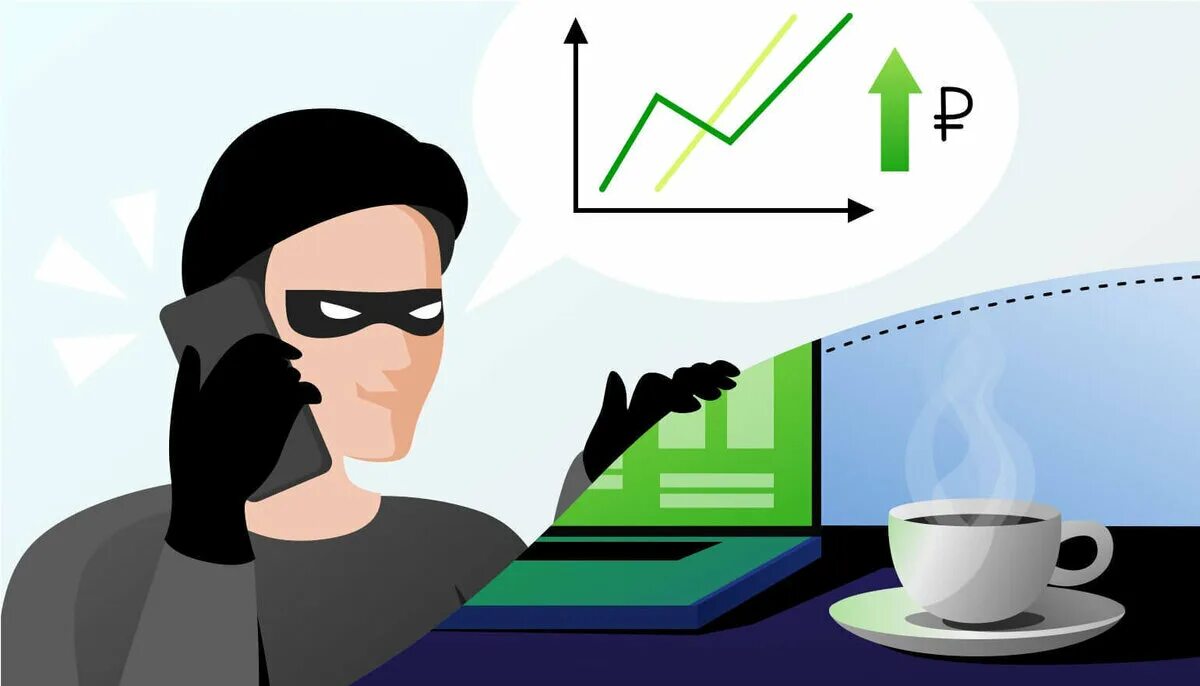Financial markets attract not only legitimate investors but also scammers who use schemes related to fake investments. One common scam is the sale of counterfeit bonds and fake stocks that have no real value. Victims of such schemes lose significant sums, hoping for high returns. To protect your money, it's important to understand the fraud schemes, recognize their signs, and know how to check the reliability of investment offers.
Fraud Schemes in the Stock Market
Securities scams can take various forms. The main types of fraud include:
- Sale of fake stocks. Scammers create fake companies or copy the names of real enterprises, offering to sell their stocks. Such securities are not traded on the exchange and have no legal force.
- Distribution of counterfeit bonds. In this scheme, fraudsters convince investors to invest money in bonds of nonexistent or bankrupt companies. In reality, buyers receive documents that are not confirmed by official regulators.
- Investment scam through fake brokerage firms. Scammers create websites mimicking well-known trading platforms, where users are supposedly able to buy shares of leading companies. After transferring funds, the money disappears.
- Stock market fraud through “hot” offers. Victims are promised a unique opportunity to buy securities of large corporations at a discounted price. However, after the purchase, it turns out that the stocks are either fake or do not belong to the seller.
- Securities fraud through messengers. Fraudulent groups operate in Telegram and other apps, promoting “promising” investments in counterfeit bonds or little-known companies.
- Forgery of stocks and bonds using fake certificates. Investors are given fake documents supposedly confirming their ownership of assets. In reality, these papers have no legal force.
- Financial fraud with new company shares (ICO and IPO). Victims are convinced to invest in startups that supposedly will soon go public, but in reality, these companies either do not exist or have no such plans.

How to Recognize Counterfeits and Protect Yourself from Scammers
To avoid becoming a victim of an investment scam, it's important to check every offer to purchase stocks or bonds. The main signs of fraud include:
- Absence of the company in stock market registers. All legal issuers of securities are registered in official databases available on regulator websites. If company information is missing, it's a reason to be cautious.
- Guaranteed excessive profitability. The stock market does not provide stable and guaranteed high returns. If huge profits are promised without risks, it's a likely sign of fraud.
- Fake reviews and ratings. Many scammers create fake sites with positive reviews and ratings to instill trust.
- Use of pressure. Scammers often persuade potential investors to act quickly, claiming the offer is time-limited.
- Difficulty withdrawing funds. If a broker or platform delays the withdrawal process, requiring additional payments or documents, it's a clear signal of fraud.

How to Avoid Investment Fraud
To avoid falling into the trap of securities fraud, it's important to follow several precautionary measures:
- Check the broker's license. Legal brokers are registered with official financial authorities such as the Central Bank or the Securities Commission.
- Analyze documentation. Any company issuing stocks or bonds is required to publish financial reports and prospectuses. Their absence is a warning sign.
- Use reliable investment platforms. All securities transactions should be conducted through official exchanges and verified intermediaries.
- Avoid dubious offers. If someone offers investments in “secret” or “unique” assets that are not available to the general public, it's a reason to be cautious.
- Do not trust financial advisors without confirmed qualifications. Many scammers pose as investment analysts but have no licenses or real experience in the stock market.

Conclusion
Securities fraud with fake stocks and bonds remains one of the most dangerous financial scams. Scammers use various methods—from creating fake brokerage platforms to selling fictitious bonds through Telegram and other messengers. Potential investors are attracted by promises of high returns and quick earnings, but in most cases, this leads to a loss of money.
To protect yourself, you need to carefully check all investment offers, analyze the issuing company, and use only licensed brokers. Financial literacy and attentiveness will help you avoid fraudulent schemes and preserve your capital.

 >
>